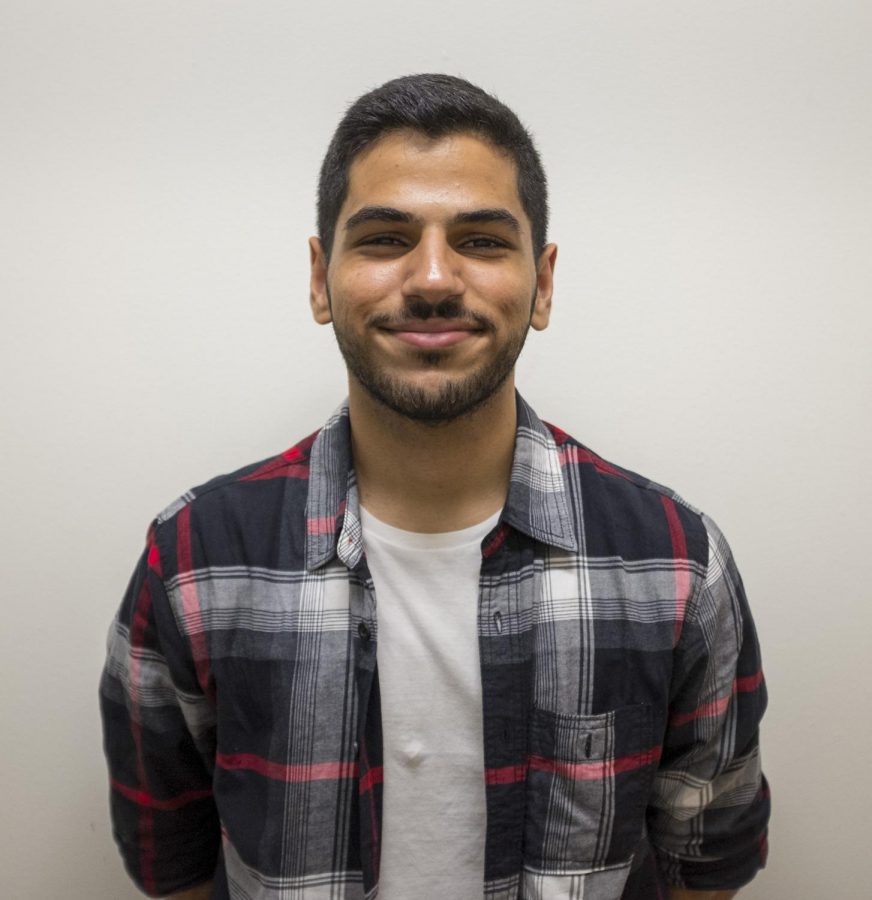The Middle East Is More Than Just War and Oil
October 1, 2018
My family works hard to earn its keep. We don’t benefit from oil sales. I live in the charming and quiet emirate of Ras Al Khaimah in a largely suburban neighborhood devoid of swanky skyscrapers. I’m from a nation that is extremely young, with a high percentage of residents being between the ages of 15 and 30. And despite my fairly normal upbringing, I want to talk about my life in the United Arab Emirates, a nation famous for being an extremely wealthy, oil-rich Gulf state that has been around for less than five decades.
Being an Emirati at the Tandon School of Engineering means that I often have to be the first to introduce my peers to the UAE. As a result, it has always been a daunting issue for me to explain where I come from.
For several of my peers, their only exposure to the UAE is through NYU Abu Dhabi. Unfortunately, that paints the image of a nation rife with labor abuse and known for pampering its students while illegitimately barring certain professors from entering. To others who are unaware of the UAE entirely, I’m placed in the awkward situation of trying to position myself geographically for the listener. I often have to resort to keywords and phrases that would allow people to visualize vaguely where the UAE is — one of those phrases being “the Middle East.”
The term itself is problematic in discussing ethnic background in everyday discourse. “The Middle East” is an invented phrase used and popularized by the British Navy during the 1940s and, in reality, has no fixed meaning. The territories grouped into this term encompass a wide range of countries, in regions from Asia to North Africa. Lumping together all of these backgrounds is absurd. Although some regional commonalities exist in almost all of these nationalities, they are far from homogenous.
The classification of Middle Easterner also conjures the assumption of wealth. Once, when I said that I was from the Middle East, someone asked, “Oh, are you like, an oil prince?” For the record, I am not royal nor do I own an oil field. But this assumption is not uncommon — the concept of a gulf state often evokes a sense of exuberant wealth and unnecessary spending on cars and homes. This assumption has a foothold in reality; the benefit of having a population of one million allows for a differing definition of middle class. More specifically, it indicates that the economic income that defines middle class in the region is generally higher than that of the globally-assumed average. However, this assumption has been inflated to a fictional level. Economic diversity most definitely exists within the UAE. Yet, when I tell my NYU peers — some of whom are unfortunately burdened by student debt — where I am from, I am cast as someone who cannot relate to that financial struggle, which is a false and lazy assumption. Most Emirati students and professionals in the United States either work or are contracted to work after their studies to pay off their loans.
The term “Middle East” also implies conflict. For as long as I’ve been alive, I have observed the media paint the region as an eternally conflicted zone full of sand and rubble that is devoid of reasonable individuals who are capable of agreeing with one another. Due to this portrayal, there exists an assumption that every Middle Easterner is bound to fall into a conflict since they have been in turmoil for as long as the term has been invented, implying that it must be in their nature to be at odds with those around them. It’s dehumanizing to be met with these assumptions.
The Middle East no longer refers to a geographic location but rather an ideological archetype of a permanently angry man in a long white dress and headgear yelling in Arabic. It’s comical to me because most people in the supposed Middle East wouldn’t fit that stereotype — most don’t wear traditional garb and some don’t even speak Arabic. This understanding of the Middle Easterner has morphed the term, so that the words “Middle Eastern” conjure up fallacies that are harmful in everyday interactions — and, in some cases, are downright racist.
I’m from the UAE, a nation that, despite its youth, has instilled within its citizens a sense of cultural pride. And so next time you ask me where I’m from, I’d be happy to explain what it means to be an Emirati — free from the caricature that is usually associated with the Middle East.
A version of this article appeared in the Monday, Oct. 1 print edition.
An Emirati Abroad offers insight into the social and cultural interactions of the United Arab Emirates population internally and its intersections with the Western world. As a local, Jasem hopes to correct the inaccurate and at times problematic perception of the UAE by shedding light on the important aspects of Emirati life and providing a reflection of the current UAE cultural landscape as he sees it.
Jasem Alzaabi is a junior studying Mechanical Engineering at Tandon School of Engineering. Email Jasem at [email protected].
Opinions expressed on the editorial pages are not necessarily those of WSN, and our publication of opinions is not an endorsement of them.

























































































































































Sulayman F • Oct 1, 2018 at 8:36 am
Great piece, thanks for sharing!